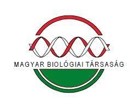A tudományos bizonytalanság forrásai és szerepe a természet- és környezetvédelmi döntések ökológiai megalapozhatóságában
Absztrakt
A környezetvédelmi döntések meghozatalakor az ökológusok szakvéleményei gyakran háttérbe szorulnak. A természettudományos szempontok e torzulásának fő okát a szakirodalmi álláspontok a tudományos bizonytalanságban látják. A scientifi c uncertainty forrásainak jobb megértése éppen ezért elengedhetetlen az ökológiai szempontok hatékonyabb érvényesítésében a döntéshozatali folyamatok során. A tudományos bizonytalanság forrásainak átfogó rendszerezése mindeddig nem történt meg, ezért a jelen tanulmány kísérletet tesz a szakirodalomban fellelhető ágazati példák egységesítésével, újragondolásával a tudományos bizonytalanság forrásainak átfogó csoportosítására.
Hivatkozások
Brown, J. D. (2010): Prospects for the open treatment of uncertainty in environmental research. – Progress in Physical Geography 34: 75–100.
Doremus, H. (1997): Listing decisions under the Endangered Species Act: Why better science isn’t always better policy? – Washington University Law Quarterly 75: 1029–1152.
Farber, D. A. (1999): Eco-Pragmatism. Making Sensible Environmental Decisions in an Uncertain World. University Chicago Press, pp. 70–73.
Gosselin, F. (2009): Management on the basis of the best scientific data or integration of ecological research within management? Lessons learned from the Nothern spotted owl saga on the connection between research and management in conservation biology. – Biodiversity Conservation 18: 777–793.
Harwood, J. & Stokes, K. (2003): Coping with uncertainty in ecological advice: lessons from fi sheries. – TRENDS in Ecology and Evolution 18: 617–622.
Koch, S. (2005): A tökéletlenség és korlátosság dicsérete. – In: Koch, S.: Pillanat, ember, végtelenség – Írások Koch Sándortól és Koch Sándorról. Scientia Kiadó, Budapest
Ludwig, D. E., Mangel, M. & Haddad, B. (2001): Ecology, Conservation, and Public Policy. – Annual Review of Ecology and Systematics 32: 481–517.
Opdam, P. F. M., Broekmeyer, M. E. A. & Kistenkas, F. H. (2009): Identifying uncertainties in judging the significance of human impacts on Natura 2000 sites. – Environmental Science & Policy 12: 912–921.
Regan, H. M., Colyvan, M. & Burgman, M. A. (2002): A Taxonomy and Treatment of Uncertainty for Ecology and Conservation Biology. – Ecological Applications 12: 618–628. Sands, Ph. (ed) (2012): The Principles of International Environmental Law – Cambridge University Press, 167 p.
Scheuring, I. (2007): Nemlineáris jelenségek az ökológiában. – In: Pásztor E. & Oborny B. (szerk.): Ökológia. Nemzeti Tankönyvkiadó, Budapest, pp. 157–166.
Sigel, K., Klauer, B. & Pahl-Wostl, C. (2010): Conceptualizing uncertainty in environmental decision-making: The example of the EU water framework directive. – Ecological Economics 69: 502–510.
Treweek, J. (1999): Environmental Impact Assessment – Blackwell Science Ltd., Oxford, 294 p.
Yodzis, P. (2000): Diffuse Effect in Food Webs. – Ecology 81: 261–266.
Yodzis, P. (2001): Must top predators be culled for the sake of fi sheries? – TRENDS in Ecology & Evolution 16: 78-84.






